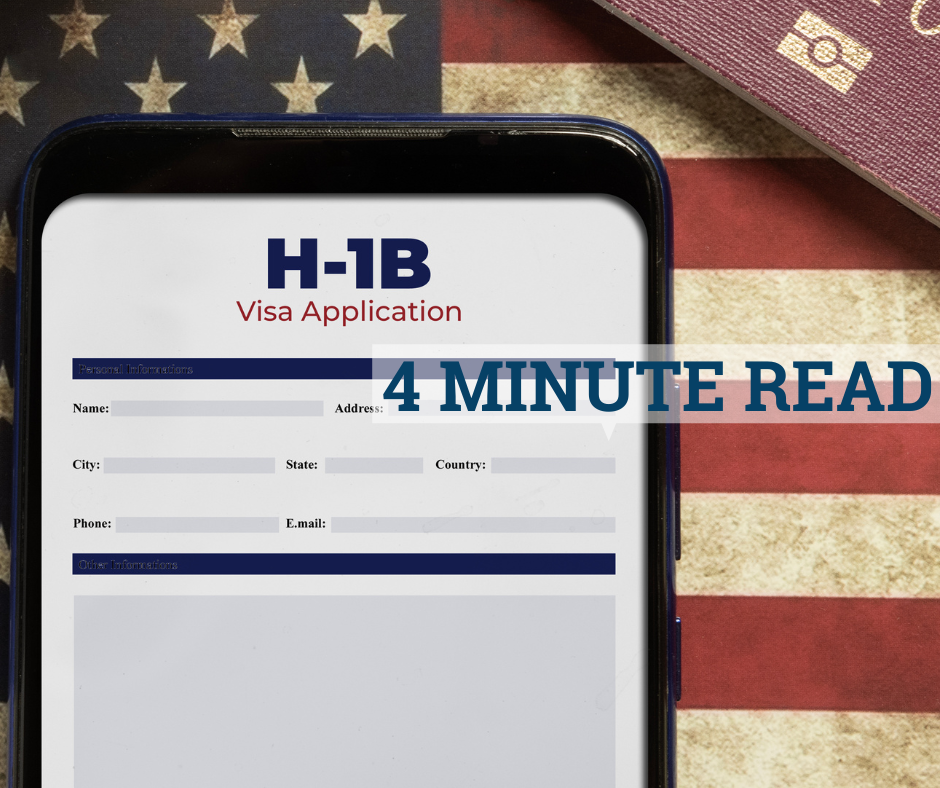
In a refreshing turn of events, the U.S. Citizenship and Immigration Services (USCIS) is shaking up the H-1B visa program by releasing a published notice of proposed rulemaking. This change aims to streamline processes, protect against fraud, and bring a new approach to lottery selection. Continue reading to explore this exciting transformation with a simplified look at what’s on the horizon.
Understanding H-1B Visa Program
The H-1B visa program, a cornerstone of America’s immigration policy, is essential for bringing highly skilled foreign professionals to the United States. Designed to attract top talent worldwide, this program allows employers to hire individuals with specialized skills, particularly in fields such as technology, engineering, and science, where a shortage of qualified domestic workers exists. The H-1B program not only bolsters American innovation and competitiveness but also fosters diversity as it allows individuals to contribute their expertise and unique perspectives to the nation’s dynamic and multicultural workforce.
Efficiency And Improvement
The Secretary of Homeland Security is championing these regulations, emphasizing the need to attract global talent, ease the burden on employers, and tackle fraud and abuse in the immigration system. These changes are set to make life easier for employers and workers.
A New Twist In Lottery Selection
One of the most significant changes is how the USCIS conducts the H-1B registration selection process. The more registrations submitted for a single individual, the higher their chances of being selected in the lottery. However, with the proposed changes, every unique individual only gets entry into the selection process, regardless of how many registrations are submitted for them. This is a game-changer, preventing abuse and increasing the odds of legitimate candidates being selected.
Educational Criteria Redefined
The proposed rules also redefine the educational criteria for H-1B status. While a position can accept a range of degrees, there must be a clear link between the degree fields and job duties. A general degree will no longer suffice. This opens doors for “skills-first hiring,” allowing employers to consider skills as a vital factor in the hiring process.
Location Matters
Changes in an H-1B worker’s place of employment will be addressed more clearly. Any change requiring a new labor condition application will be considered a material change, necessitating the filing of an amended or new position. This is to ensure transparency and accountability.
Third-Party Roles
When an H-1B worker is assigned to a third party, the focus will shift to the actual work they’ll be performing for that third party. It’s a move to ensure that H-1B status is genuinely warranted in such cases.
Extended Protection For F-1 Students
F-1 students transitioning to H-1B status will have an extended grace period of up to six months for status and employment authorization. The F-1 visa allows a student to temporarily live in the United States for a defined period of time while studying at a school, college, seminary, or conservatory. This extension will help them avoid gaps in their status and work authorization while awaiting their change to H-1B status.
Codifying Key Practices
The USCIS is also looking to codify some of its long-standing practices. This includes requestion contracts and other proof of a bona fide job offer for each H-1B beneficiary. The itinerary requirement for an H-1B petition is on the way out.
Deference Policy
In addition, a clarification has been made regarding the deference policy. It states that if there have been no significant changes in the underlying facts, adjudicators should generally defer to a prior determination. This change eliminates the need for unnecessary scrutiny and requests for evidence.
Site Visits
USCIS is reinforcing the importance of site visits to maintain the integrity of the H-1B program and to deter fraud and noncompliance. Organizations that fail to cooperate during these visits may face denial or revocation of their petitions. Site visits can encompass on-site inspections, interviews, record reviews, and more.
Navigating These New Horizons
In this era of change for the H-1B visa program, the path ahead seems promising for employers and foreign workers. As these transformative regulations take shape, it’s crucial for businesses, especially small enterprises, to adapt and navigate these new horizons seamlessly. This is where a professional employer organization (PEO) comes in to help small business owners. PEOs like Group Management Services (GMS) provide support in navigating complex immigration and employment regulations, ensuring compliance, and managing HR functions effectively. So, as we anticipate a brighter and more efficient future for the H-1B program, remember that PEOs can help you along this journey, allowing you to thrive and remain compliant. Get a quote from us today!